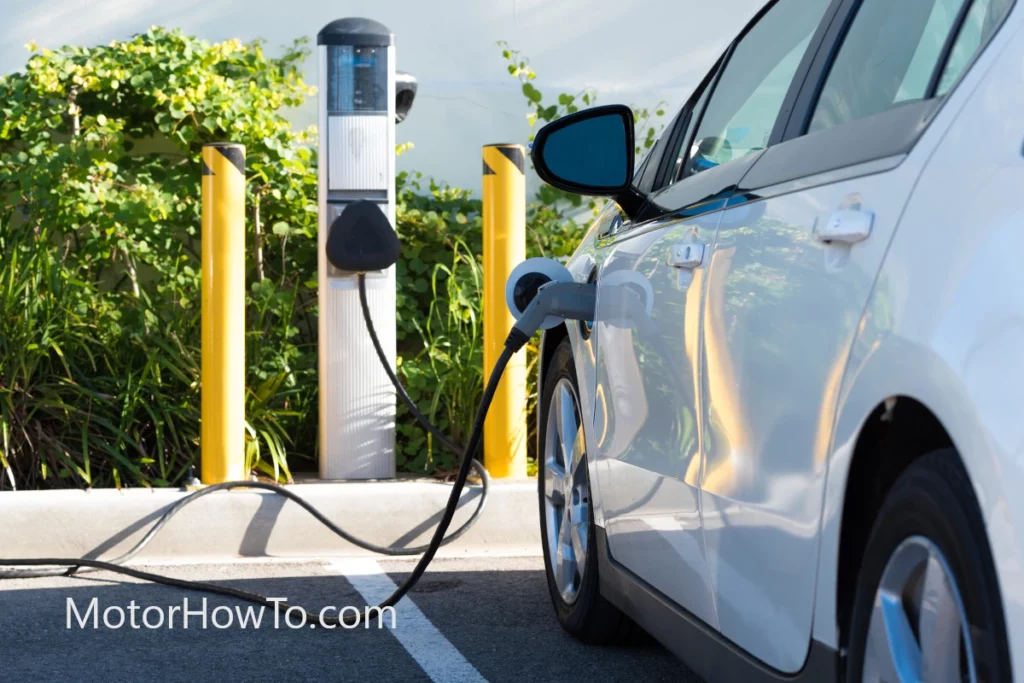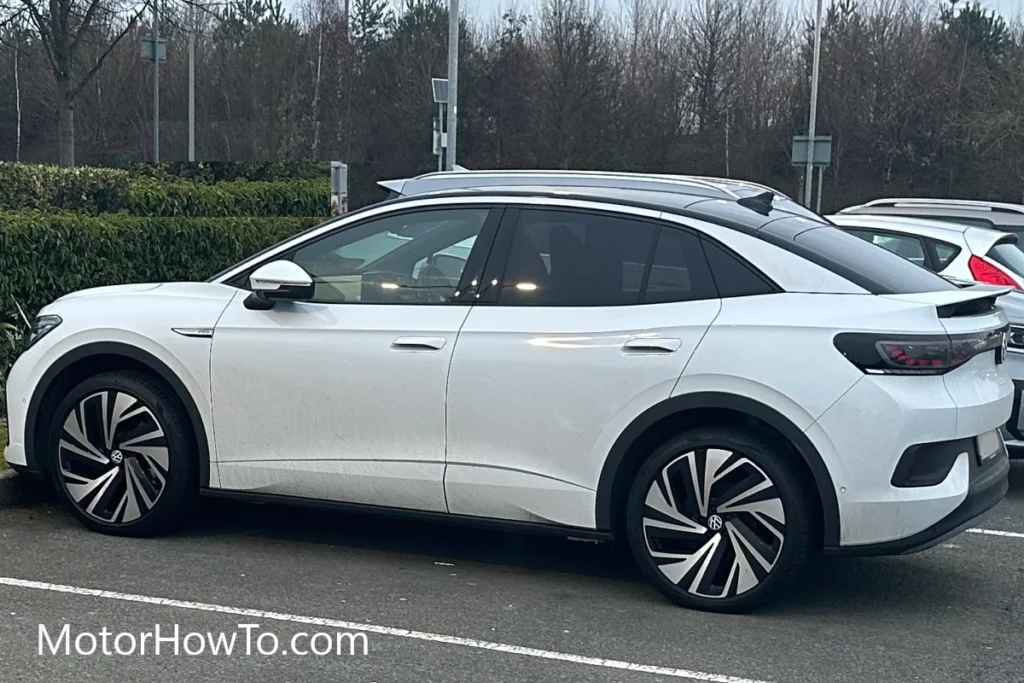Electric cars are becoming increasingly popular due to their many benefits, including lower operating costs and reduced environmental impact.
If you struggle to afford gas for your traditional gas-powered vehicle, consider switching to an electric car.
Not only will you save money on fuel, but you will also benefit from government incentives designed to encourage adoption. Another benefit of electric cars is their low maintenance costs. With fewer moving parts and no need for regular oil changes or engine tune-ups, electric vehicles can save you money on maintenance and repairs. Electric cars are typically more reliable than gas-powered ones, as they have fewer parts that can break down or wear out over time.

An electric car may be the right choice if you are looking for a more cost-effective and environmentally friendly way to get around.
So, if you want to enjoy all the benefits of electric cars without breaking the bank, it’s time to start looking into making the switch.
Related:
- What Is The Toughest Part Of Building An Electric Car? (Explained)
- Regenerative Braking Temporarily Reduced (Answered)
- Why Does Regenerative Braking Sometimes Become Unavailable? (Solved)
Why should you buy an electric car if you don’t have money for gas?
The popularity of electric cars is rising due to lower operating expenses and reduced environmental impact.
If you find paying gas for your traditional gasoline vehicle, consider switching to an electric car.
By doing so, you will minimize fuel costs and take advantage of numerous government incentives to promote the use of electric vehicles (EVs). These incentives, which can include tax credits, rebates, and subsidies, make purchasing an electric car more manageable.
Another benefit of electric cars is their low maintenance costs. Electric cars are typically more reliable than gas-powered ones, as they have fewer parts that can break down or wear out over time. With fewer moving parts and no need for regular oil changes or engine tune-ups, electric cars can save you money on maintenance and repairs.
Finally, driving an electric car can help reduce your carbon footprint and contribute to a cleaner environment. With the increasing demand for sustainable energy solutions, electric cars offer a solution that benefits the environment and your wallet. An electric car is worth considering if you’re looking for a more cost-effective and environmentally friendly way to get around.
Hidden costs of owning an electric car
Owning an electric car can provide a more cost-effective and environmentally friendly mode of transportation. Still, there are some hidden costs to consider. The following bullet points highlight these costs and explain what they entail:
1. Battery replacement costs
The cost of replacing a battery in an electric car can be high, especially if it’s outside the warranty period. This cost is a hidden expense as it may take time to be apparent at the time of purchase.
2. Higher charging costs when relying on public charging stations
If you need access to home charging or a workplace charging station, you may need to rely on public charging stations, which can be more expensive than refueling at a gas station.
3. Complex and specialized maintenance and repair costs
While electric cars have fewer moving parts and require less maintenance than gas-powered vehicles, the cost of repairs can be higher due to the complexity of the technology. Additionally, you may require specialized knowledge and equipment to repair electric cars, which can add to the cost of ownership.
4. Higher upfront costs, compared to gas-powered vehicles
Electric cars often have a higher upfront cost than gas-powered vehicles, which can be a hidden cost for some consumers. However, the long-term cost savings from lower operating expenses and maintenance costs can offset this upfront cost over time.
Considering these hidden costs, you can make an informed decision about whether an electric car is right.
Electric car vs. gas car cost
When considering the cost of owning a car, it’s important to compare the expenses associated with electric cars versus those associated with gas-powered vehicles. Several factors come into play, including upfront costs, fuel, maintenance, and more. By comparing these costs, you can make an informed decision about which type of car is right for you.
| Cost Type | Electric Car | Gas Powered Car |
|---|---|---|
| Upfront Cost | Higher | Lower |
| Fuel Cost | Lower | Higher |
| Maintenance Cost | Lower | Higher |
| Tax Credits/Rebates | Available | Limited |
The cost comparison in the table above is a general estimate and can vary based on the specific make and model of the car, as well as regional differences in fuel and electricity costs.
The resale value of electric vs. gas cars
When considering purchasing a car, it’s important to consider not just the upfront cost but also the vehicle’s resale value.
In recent years, the resale value of electric cars has been discussed as the electric car market continues to grow.
However, the resale value of electric cars compared to gas-powered vehicles is still being determined by many consumers.
Generally, electric cars have had a lower resale value than gas-powered vehicles due to the rapid pace of technological advancement in the electric car industry.
This means that older electric cars’ battery technology and other components may need to be updated more quickly than traditional gas-powered vehicles.
However, this trend may change with the growing popularity of electric cars and advancements in battery technology.
When it comes to resale value, electric cars, and gas-powered vehicles have their pros and cons. The following bullet points highlight some of the factors that can affect the resale value of each type of car:
The resale value of an electric car
Battery life and replacement costs
The condition of the battery and the cost of replacing it can be significant factors in the resale value of an electric car. Buyers are more likely to pay more for an electric car with a battery in good condition and a warranty than one with an older or less reliable battery.
Model popularity and demand
Like any other car, the popularity of an electric car’s specific make and model can affect its resale value. If the model is in high demand, it’s more likely to have a higher resale value than one less popular.
Government incentives
Government incentives, such as tax credits and rebates, can also play a role in the resale value of an electric car. These incentives can make the car more attractive to buyers and increase its resale value.
The resale value of gas-powered vehicles
Depreciation rate
The depreciation rate for gas-powered vehicles is typically higher than for electric cars, meaning that the value of a gas-powered vehicle may decline more quickly over time.
Fuel efficiency
The fuel efficiency of a gas-powered car can be a significant factor in its resale value. Cars with better fuel efficiency are typically more valuable and in higher demand than those with poor fuel efficiency.
Model popularity and demand
As with electric cars, the popularity of the make and model of a gas-powered car can also affect its resale value.
In conclusion, both electric cars and gas-powered vehicles have factors that can impact their resale value. When choosing between the two, it’s essential to consider the specific model, its associated factors, and your personal preferences and priorities.
Conclusion
The choice between an electric car and a gas-powered vehicle is a complex one that involves many factors, including upfront cost, fuel cost, maintenance cost, resale value, and more.
When considering the cost of owning a car, it’s important to compare all expenses associated with each type of vehicle.
Electric cars have the advantage of lower fuel and maintenance costs, as well as the availability of tax credits and rebates.
However, they also have hidden costs, such as battery replacement costs, higher charging costs when relying on public charging stations, and higher upfront costs compared to gas-powered vehicles.
The resale value of electric cars has been lower than that of gas-powered vehicles due to the rapid pace of technological advancement in the electric car industry. However, this trend may change as the popularity of electric cars continues to grow.
Sources
Will Low Resale Value Of Electric Cars Keep Its Sales Behind Petrol Cars?
The Truth Behind The Terrible Resale Value Of Electric Cars



